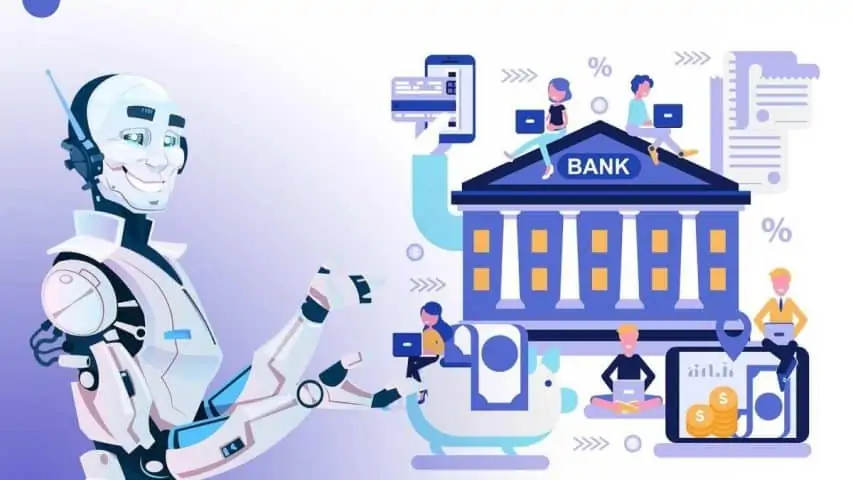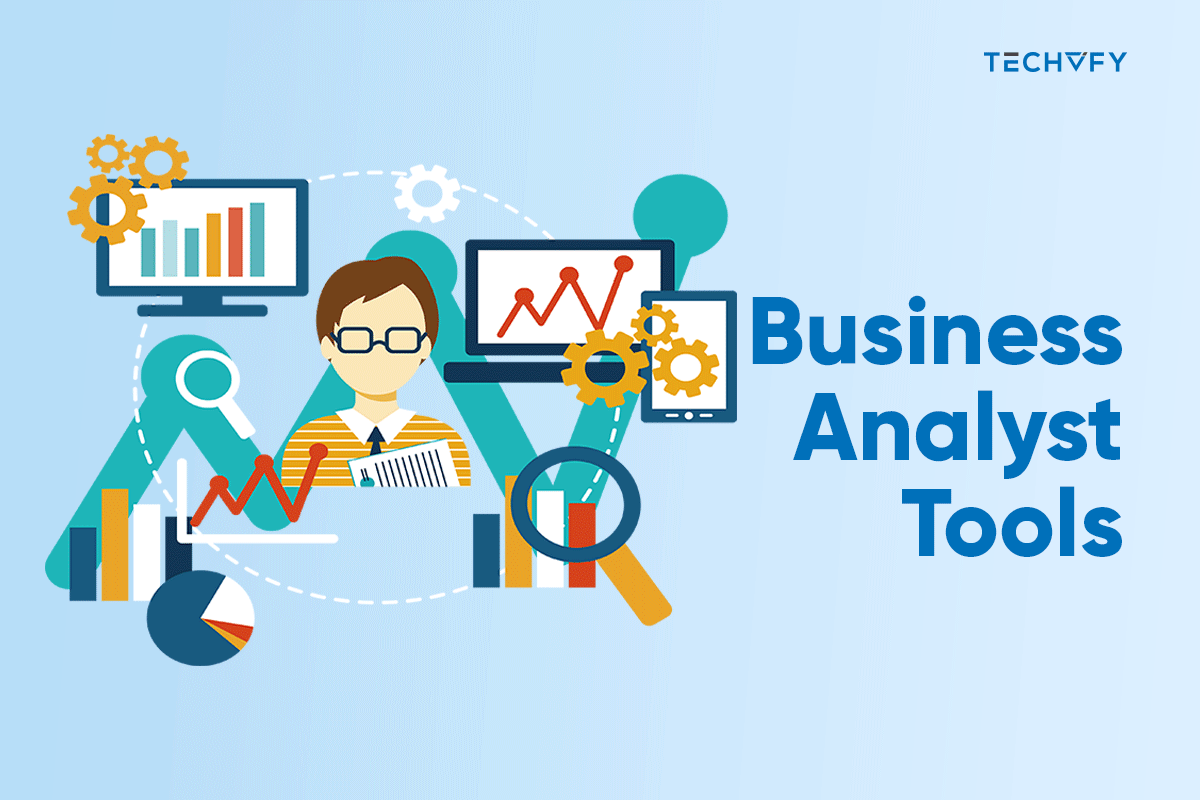Generative AI in Finance: Unveiling the Evolution
- TECHVIFY Team
- 0 Comments
Let’s dive into this electrifying article that uncovers the exhilarating potential, drawbacks, and captivating real-world applications of generative AI in finance! According to the OECD, global spending on AI in finance will double in 2020-24, increasing from $50.1 billion in 2020 to above $110 billion in 2024. These figures show that AI is becoming indispensable to the financial sector and can improve financial organizations’ operational efficiency, service quality, and revenue. In addition, AI can also increase the income of the financial services sector by 34% and economic growth by 26%. This forecast is a strong indicator of the potential of AI to revolutionize the financial industry. It shows that AI can increase revenue and stimulate economic growth.
I. Generative AI in Finance: Overview
Generative AI is artificial intelligence that can produce original content such as text, images, audio, code, and video. It has many applications in various domains, including monetary matters. In the realm of economics, Generative AI unleashes transformative potential, enhancing business operations in a variety of ways. Businesses should familiarize themselves with AI creation’s advantages and difficulties before implementing it to ensure a comprehensive understanding of its potential effects.
- The contextual journey
The contextual adventure helps this article go further into generative AI in fintech. This niche quickly grows and has enormous potential within the creative AI sector. According to Market.us, the generative AI in the fintech market was worth 865 million U.S. dollars in 2022. Additionally, the projected growth to 6,256 million dollars in 2032, with a remarkable compound annual growth rate of 22.5%, is astounding.
Looking at this landscape, we see top innovators like OpenAI, Google, Microsoft, IBM, Amazon, Facebook, Salesforce, and Alibaba pushing the boundaries of generative AI to transform the financial industry. These innovative businesses are at the forefront of bringing innovation to the financial sector by utilizing AI to develop intelligent solutions that increase productivity, accuracy, and client pleasure.
The versatility of generative AI in fintech spans a wide range of applications, revolutionizing how to interact with money. Generative AI is the driving force behind these game-changing developments, which range from chatbots that engage customers naturally to robo-advisors that offer personalized investment strategies, fraud detection algorithms that strengthen security to credit scoring models that assess risk with unmatched precision, portfolio optimization tools that maximize returns to in-depth market analyses that inform strategic decisions.
Generative AI in fintech is paving an exciting path toward the future with the fusion of cutting-edge technology and financial inventiveness, altering conventional paradigms and ushering in an era of innovation with brilliant possibilities.
- Navigate challenges to achieve a streamlined application.
While generative AI has great potential for capital organizations, it also brings risks and difficulties that must be carefully considered and managed. The International Monetary Fund (IMF) has underlined that some primary hazards are most prominent.
- Data quality and privacy are crucial as Generative AI relies on vast data volumes for precise and dependable outputs. Data may be deficient, antiquated, discriminatory, or compromised by cyberattacks or human errors.
- Ethical and legal difficulties arise due to Generative AI’s potential to generate misleading, detrimental, or illicit content. Instances include creating fake news, deepfakes, or phishing emails that can manipulate or deceive users and regulators.
- Accountability and transparency become intricate when Generative AI yields outputs that are arduous to explain or corroborate by humans. This feature encompasses generating complicated models or algorithms that prove challenging to comprehend or audit.
- Generative AI’s presence also raises concerns about competition and innovation. It can erect entry barriers or furnish unfair advantages to select market players, possibly fostering monopolies or oligopolies with superior access to data or resources.
Therefore, AI-driven capital generation requires careful regulation and governance to ensure its ethical and responsible use. It also requires collaboration and coordination among policymakers, regulators, industry players, researchers, and consumers to foster innovation and trust.
Learn more:
II. Use cases of generative AI in finance
-
Risk Assessment and Mitigation
Generative AI is pivotal in simulating diverse economic scenarios, furnishing financial institutions valuable insights into possible market trajectories. This feature facilitates comprehensive risk evaluation and the formulation of adept response strategies. Moreover, generative AI’s capability to produce synthetic data resembling actual credit data elevates the training of credit risk assessment models. The outcome is enhanced precision in credit scoring and improved risk evaluation.
-
Fraud Detection and Prevention
Another use case of this development is fraud detection and prevention. Fraud is a significant problem for the money sector, as it can cause huge losses, reputational damage, and legal issues. Fraudsters constantly evolve their techniques and strategies to evade detection and exploit vulnerabilities. Generative AI can help combat fraud by using generative adversarial networks (GANs) to create realistic synthetic data that can mimic the behavior and patterns of real fraudsters. Testers can use synthetic data to train and test fraud detection models, improve their accuracy and robustness, and expose their weaknesses.
-
Investment and Portfolio Management
Generative AI optimizes asset allocation by generating simulations of varying investment strategies. These simulations empower portfolio managers to evaluate potential outcomes, aiding in informed decisions to maximize returns and minimize risks. Additionally, by analyzing historical market data and creating synthetic data for a range of scenarios, generative AI supports the forecasting of market trends. This trait equips investment professionals with crucial insights for making well-grounded investment choices.
-
Customer Engagement and Personalization
A fourth use case of this technology is customer service and engagement. Customer service and attention are crucial for building trust, loyalty, and customer satisfaction. However, providing personalized, timely, and relevant customer service and engagement can take time and effort, especially with the increasing volume and diversity of customer queries and feedback. Generative AI can help enhance customer service and attention by using natural language understanding (NLU) and natural language generation (NLG) to create conversational agents or chatbots that can interact with customers via text or voice. These chatbots can understand the customer’s intent, context, and emotions and generate natural, human-like responses that can address their needs, answer their questions, or offer suggestions.
Please feel free to contact us for a free consultation: AI Development Services
Have a Project Idea in Mind?
Get in touch with’s experts for a free consultation. We’ll help you decide on next steps, explain how the development process is organized, and provide you with a free project estimate.
III. FAQs
What is generative AI in banking?
Generative AI is a segment of artificial intelligence that can create new data or content based on existing data. In banking, generative AI can help to generate realistic and personalized money-related products, services, reports, insights, recommendations, and scenarios for customers and stakeholders.
How is generative AI used in financial services?
Generative AI has made significant inroads into the landscape of banking services, offering distinct advantages to various stakeholders within the industry. Its diverse applications cater to bankers, users, and finance companies’ unique needs.
Bankers: Generative AI empowers bankers, particularly in algorithmic trading. Analysis of historical market data enables real-time, adaptable trading strategies, ensuring swift responses to market changes for superior outcomes. Additionally, generative AI aids risk assessment, providing insights from complex market trends and economic indicators. This trait enhances bankers’ informed investment decisions and boosts portfolio risk-adjusted returns.
Users: Diverse users, from individuals to corporations, leverage generative AI’s potential. Personalized fiscal advice aids decision-making on investments, retirement, and financial goals. Chatbots offer real-time assistance, guiding users through processes. Additionally, generative AI enhances security by detecting fraud and safeguarding assets from suspicious activities.
Finance Companies: Generative AI equips banking firms with tools for streamlined operations and improved decision-making. Credit scoring assesses diverse data to enhance lending accuracy and personalize terms. Risk management aids stress testing and strategy optimization. Integration into compliance ensures adherence to regulations, mitigating risks for monetary companies.
Conclusion
In conclusion, integrating generative AI in finance offers a transformative pathway toward enhanced efficiency, informed decision-making, and personalized customer experiences. As generative AI continues to mature, its potential benefits in risk assessment, fraud detection, investment management, and customer engagement are becoming increasingly evident.
Interested in exploring generative AI in finance but still trying to figure out where to start?
Contact TECHVIFY right away, and we’ll help you navigate specialized solutions built for increased innovation and productivity. Our business takes great pride in providing services of the highest caliber while minimizing prices. With over 300 specialists on staff, five years of expertise, and a history of over 100 successful projects, TECHVIFY is dedicated to working with you to turn your goals into realities.






